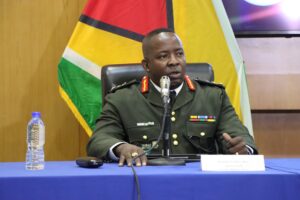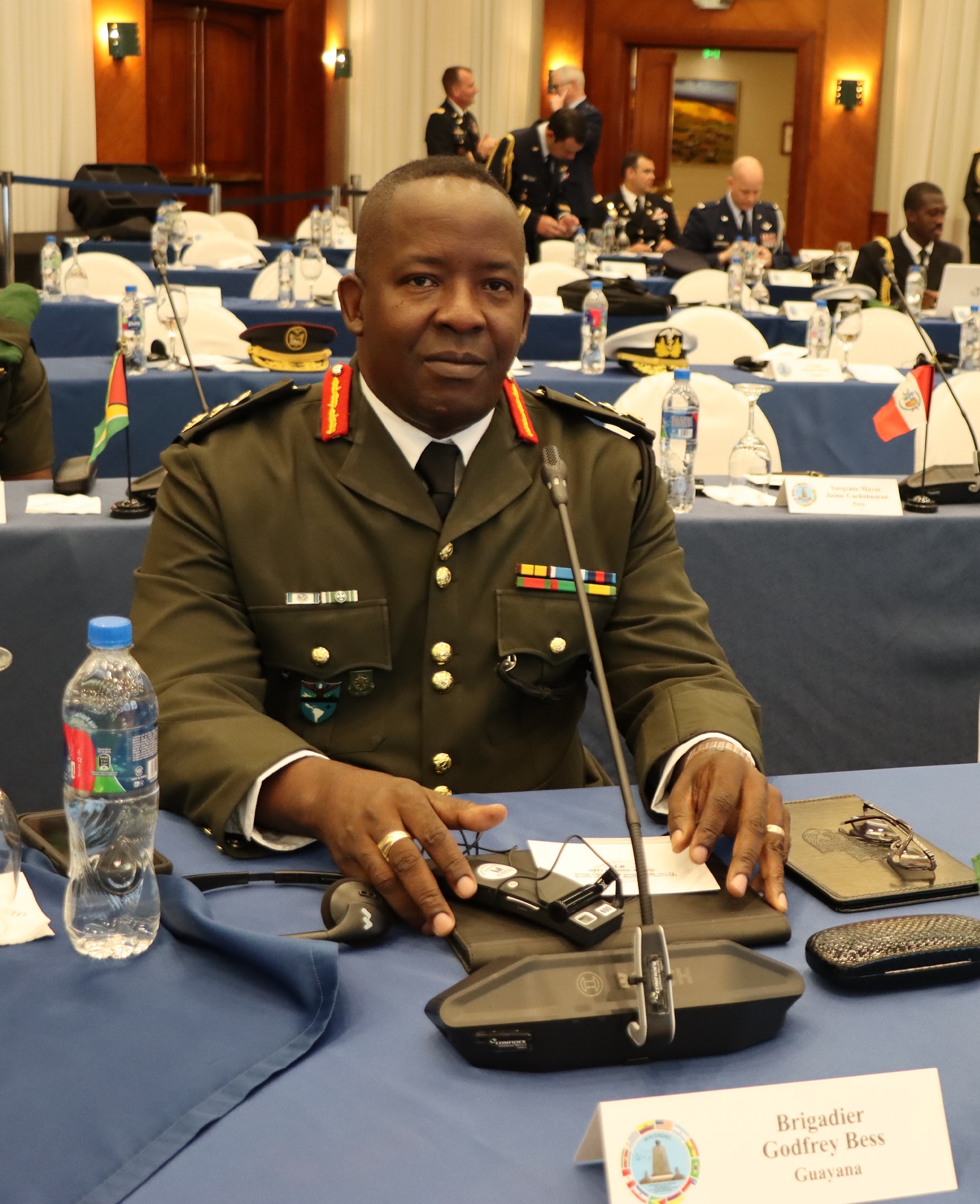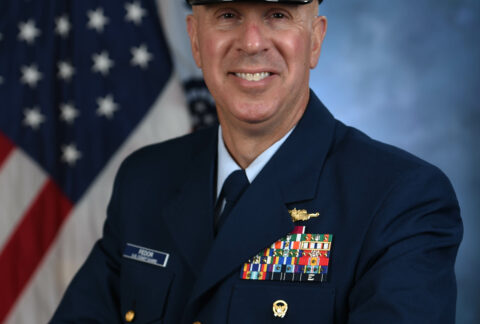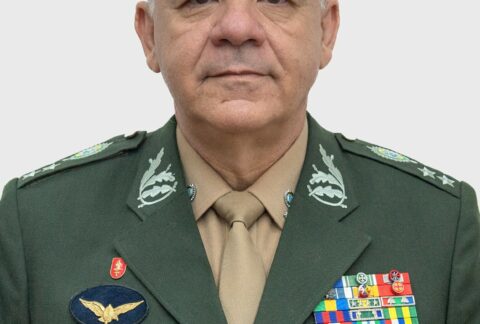Partnerships, training, military exchange programs, gender integration, and the professionalization of noncommissioned officers (NCOs) are part of the Guyana Defence Force’s (GDF) mission. The professional leadership of Brigadier Godfrey Bess, GDF Chief of Staff, who assumed command on July 1, 2020 and pledged to fulfill the institution’s mission, made these efforts possible.
Diálogo had the opportunity to talk with Brig. Bess about the GDF’s professionalization, its advances, and projection.
Diálogo: What are your concerns in terms of national security?
Brigadier Godfrey Bess, Guyana Defence Force chief of Staff: Guyana is being used as a transshipment point for narcotics trafficking coming from Venezuela and Brazil. We are exposed to piracy. These transboundary threats create opportunities for malign actors to spread their influence within our territory because of our porous borders. There are also nontraditional treats such as flooding due to rising sea levels and changing weather pattern.
Diálogo: You just mentioned that Guyana is used as a transshipment hub for cocaine to Europe and the United States, crossing sometimes from Colombia to Venezuela or Brazil’s borders. How is the GDF addressing this security threat?
Brig. Bess: We are addressing this issue by working in collaboration with international and regional partners coupled with domestic inter-agencies. Our relationships with allied countries and partners are getting stronger as we work, exercise, and train together. We’ve been successful in interdicting some of illegal activities. In addition to that, our country plans to invest in more capabilities, so that we can better police our territory.
Diálogo: GDF co-hosted with U.S. Southern Command (SOUTHCOM) the first ever Noncommissioned Officers (NCO) Jungle Symposium in June 2022. What was the goal of the symposium, especially at the NCO level? Why do you believe that engagements at the NCO level are important?

Brig. Bess: The empowerment of my NCOs is one of my priorities. The goal was to improve interoperability at that level. Additionally, our NCOs, to be the backbone of our military, must be empowered. These exposures better prepare them for the task of supporting the commissioned officers. Yes, commissioned officers are important to function in higher echelon leadership capacities. However, it is my firm conviction that NCOs and their development contribute to the positive development of the force in general. Enriching the lives of the NCOs through professional military education and exchanges, coupled with necessary guidance, creates a soldier that is balanced and has the ability to lead his unit under any condition.
Diálogo: What kind of exchanges does the GDF have with the Florida National Guard as part of the U.S. National Guard’s State Partnership Program?
Brig. Bess: I recently spearheaded a four-day military exchange visit to the Florida National Guard headquarters in Saint Augustine, Florida. We do have a very active and positive collaboration with them. The Florida National Guard and the GDF have shared a fruitful relationship that results in training opportunities at all levels and across the broad spectrum of the Defence Force, ranging from Special Forces training to specialized engineer training, coupled with a vast amount of subject matter expert exchanges. We continue to share best practices in numerous areas. I must say, during the COVID-19 pandemic period, the Florida National Guard was very active, notwithstanding the troubles that we’ve had around the world and our engagements didn’t stop. As a matter of fact, they increased exponentially within the last two years. I can see this going forward into 2023 as I’ve already signed and agreed on about 20 engagements.
Diálogo: How does the GDF help national efforts to combat illegal, unreported, and unregulated fishing?
Brig. Bess: This is a big issue for us. We are not very prepared and have not been able to be very efficient in this regard. This is a non-traditional threat for us. Fishing is the livelihood of many Guyanese and contributes to our economic development. The GDF does its part by means of utilizing our Coast Guard to patrol, while joint operations with state agencies are conducted to ensure our national interests and that our efforts are supported. I must say, though, our Coast Guard patrols have limitations as our vessels are restricted to very limited distances out of our territorial waters.
Diálogo: What progress has GDF made on gender integration?
Brig. Bess: The GDF has and will always continue to strive for gender integration. The GDF Women Army Corps celebrates this year its 55th anniversary of existence. At its establishment in 1967, the Women’s Army Corps served in administrative capacities. However, as time progressed, their role changed and our military females were exposed to combat training. Our posture in relation to gender integration has changed. We now have female paratroopers, female infantry soldiers, females serving on our borders actively involved in maintaining our territorial integrity. Recently, we’ve had the first batch of females completing our Basic Infantryman Course, but the course was renamed the Basic Infantry Soldier Course. To continue with our efforts on this area, we hosted the Caribbean Women, Peace, and Security Conference, in Georgetown, August 30-31, 2022, in collaboration with the Women, Peace, and Security Program of SOUTHCOM and the Florida National Guard.
Diálogo: How do you think the new influx of revenue from the emerging oil industry will impact the mission of your organization?
Brig. Bess: I can say for certain that with the influx of revenue from the emerging oil industry, we are going to see improvement and development in every sector of our society, including our force. There have already been works in this regard. The security sector is more capable than two years ago.









